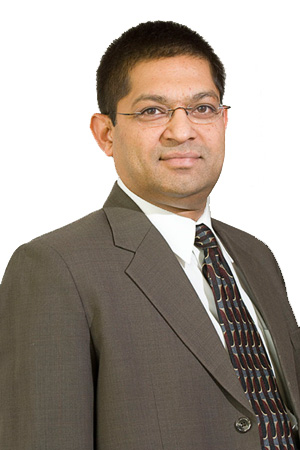“Driven by the rise in medical tourism, Asian healthcare organisations are fast embracing international accreditations and the awareness level is on the rise. Joint Commission International (JCI), the leading international accreditation body, has emerged as the gold standard in this area. It has already accredited 30 hospitals in the Asian region. JCI has also set up its first international office in Singapore recently.
Against this backdrop, Asian Hospital & Healthcare Management invited Anne Rooney, Executive Director of International Services at JCI to share her views about Asia. Following are the insights shared by her in an exclusive interview with Akhil Tandulwadikar.”

1. What has been the response so far from Asian Hospitals to your accreditations? How do you view the demand for accreditations from Asia going forward?
I think the response so far has been very strong in Asia. Driven by the response JCI is opening its first Asia Pacific regional office in Singapore. Also, the hospitals are keenly interested in learning about issues like quality improvement, patient safety, Infection control or looking at how they can improve their care, for example, in the area of disease management, so the response really is strong. A recently held five-day practicum at Singapore was fully booked about six weeks in advance! This shows that there is a very strong interest in education about quality standards in Asia. Going forward, I think the demand for accreditations will continue to be very strong. For one thing it’s such a huge region and there is a lot of activity – both at the public and private healthcare centres. And as we know, interest in healthcare tourism has really sparked off an interest in looking at some kind of distinction amongst hospitals. I think that the interest in accreditation will only continue to rise in the future.
2. Is your strategy for tapping the Asian market different from that for other markets in developed countries such as USA?
Asia, as I mentioned earlier, is a very broad and diverse region. In terms of strategy, JCI has just tried to be responsive to organizations that have expressed interest in some way working with us. It could be that they are interested in accreditations – this could be on a national level as well. For example, on July 31, 2006 JCI signed a memorandum of understanding with the government of China to work together in areas such as accreditations, quality improvement, patient safety and standards. Again, we have a very strong relationship with the Ministry of Health in Singapore and with some private associations in India. In Hong Kong the government’s priorities are, looking at infection control and readiness for hospitals to handle major disease outbreaks, there may be very different issues for example in Malaysia and other countries.
I think we try to respond to the needs of the region. It’s often at a country level dealing with issues that may be going on over there.
3. Do you think that the accreditations accorded to a few hospitals in the region, should generate peer pressure among the hospitals in the region?
Well, I think that has already happened. In the unfolding of that scenario, JCI has been more of an observer. I think it is certainly true that almost any where in the world now, including the United States, healthcare is a very competitive market and as I mentioned before, particularly in the area of health tourism, where a hospital may be interested in attracting patients from outside its local market, definitely an accreditation is a way to distinguish for a hospital. Also a part of the competition is looking at working with multi-national corporations. For example, some large multi-national corporations are very interested in knowing where they should be sending their employees around the world for treatments.
4. What do you think about the incentives being offered by many American companies for getting treated in low-cost destinations like those in Asia?
There is sort of a growing movement among US companies. It is still relatively small.
5. What are the key pre-requisites for a hospital to get accredited successfully and retain it then on?
Well, one is that the hospital needs to have high level of commitment at the leadership level. I think that is perhaps the most important variable for a hospital to be able to be accredited. And the hospitals should also subject their processes to a very critical self-evaluation. They may break those processes up in terms of patient care or the safety of the facility or information management, but the standards really look at the overall framework of almost every aspect of the hospitals operations. So, it has to be the whole organization. It can’t just be one person or one department (the quality department) that’s told to look at this accreditation. This is something that ensures that the accreditation is sustained. And that starts with the leadership.
6. Given the industry demographics of the Asian hospitals (most of which are in the developing nations), do you think it is worthwhile for a mid-size Asian hospital to go for accreditation in cost-benefit terms?
That’s probably an individual decision for each hospital. But I have seen it in organizations with limited resources that JCI accreditation is still achievable and reach the standards. The way JCI has designed the standards we want it to be a very high level of care, but that could be how the organization meets the standards could allow some creativity. And I think ultimately by improving care and, for example, by reducing risks for patients it is a benefit in terms of cost benefit ratio. For example, there will be lower infection rates, better retention of staff, a general reduction in errors. That is also something that over a period of time we would like to study to see the specific improvements going forward with an organization. It would certainly be worthwhile in the long term for a smaller organization to be accredited.
7. What changes did Asian hospitals experience post-accreditation?
The difference is not so much to get the accreditation award, that’s the final step of the journey, but for the organization overtime. It takes about one to two years for an organization to become accredited. We have seen that the accreditation has made a lot of difference in terms of important aspects of care. Some of the feedback that we have got from hospitals in Asian region – and this is true about the hospitals around the world –is significant reduction in medication errors, reduced infection rates in hospital-acquired infections, improved pain management, and also a much developed system of assuring the competence level of the staff.
It’s interesting to note that some organizations have reduced medication errors by almost 75% to 80 %. That obviously translates into a better patient experience.
8. What challenges do hospitals face while preparing for accreditation and post accreditation?
I think it is important to be aware of what it takes to do this. It is not just “we’ll get ready for getting the accreditation” and then getting back to business as usual. It is really about transforming an organization and its processes. To really implement the processes and the policies, staff training is needed to ensure that this is sustained and I think the organizations that do this well really get to see a huge difference in the way they manage their hospitals. And this is a challenge; I mean that’s not something that is so easy to do. It takes strong commitment from the top management and particularly for some of the physician leaders. The physicians especially need to be very much on board with the entire process.
But while the top management needs to be fully committed, the role of the other staff cannot be ignored. We believe that their role is absolutely essential because so many of the standards touch on aspects of the patient rights, infection control, patient assessment and that’s actually by design –the way we have set up the standards. It is not like chapters of what nurses do or the staff does. It really is about taking a patient outward approach. And that is going to impact anybody who is involved in the running of the hospital or whose work interfaces with the patient’s stay at the hospital.
9. What effect does the implementation of accreditation standards has on the staff?
What we have heard from the organizations around the world, especially if this is done in a very positive way, as something like the entire organization is striving for, is that this can be enormously inspiring for the organization and they can take a lot of pride in things like team building. Again it’s the role of leadership to make it that way, and not really doing it because somebody else is doing it but because we think that it’s the right thing to do.
10. What is your message to the hospital directors of Asia?
We strongly believe that accreditations have been a very valuable organizing framework for looking at quality and patient safety and it demonstrates commitment to international standards to improve healthcare quality and patient safety. And JCI would encourage hospitals to go for the JCI or any other accreditation program and to really look at it as a management tool to monitor the operations on an ongoing basis. JCI would like very much to work with the hospitals in Asia in a supportive way and help them to understand the standards and help them to implement them by providing more education in the region which was emphasized by the Singapore Practicum with more to follow in countries like India, China and elsewhere in the region.




